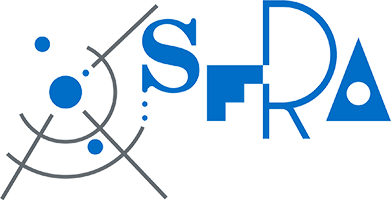Mary Kay Bray Award
The Mary Kay Bray Award is given for the best review to appear in the SFRA Review in a given year.
[*Each award is keyed to the calendar year preceding the conference at which it was presented.]
Award Committee
Nora Castle (chair)
Dennis Wilson Wise
Aníbal Hernández Medina
2025:
- Mehdi Achouche, “The Wandering Earth II ” (54.1).
2024:
- David Welch, “Hades” (53.1).
2023:
- Dennis Wilson Wise, “Hidden Wyndham: Life, Love, Letters” (52.1).
- Honorable Mention: Jeremy Brett, “WandaVision” (52.1).
2022:
- Nora Castle, “Upload (2020, TV series)” (51.1).
2021: Tied winners:
- Virginia L. Conn, “Science Fiction Circuits of the South and East” (50.1), and
- Andy Duncan, “Astounding: John W. Campbell, Isaac Asimov, Robert A. Heinlein, L. Ron Hubbard, and the Golden Age of Science Fiction” (50.2-3).
2020: Tied winners:
- Erin Horáková, “Treknomics” (#327), and
- Rich Horton, “Gene Wolfe” (#327).
2019: Tied winners:
- Amandine Faucheux’s review of The Stone Sky (#324) and
- T.S. Miller’s review of The Oxford Handbook of Science Fiction (#323)
2018:
- Hugh C. O’Connell, review of Jack Fennell’s Irish Science Fiction (#319, Winter 2017)
2017:
- A.P. Canavan, review of Netflix’s Daredevil and Jessica Jones (#315, Winter 2016)
2016:
- Amy Ransom, review of The Liverpool Companion to World Science Fiction Film (#312, Spring 2015)
2015:
- Marleen S. Barr, Paweł Frelik, and Andy Hageman, roundtable on Under the Skin (#310, Fall 2014)
2014:
- Lisa Yaszek, “Narrative, Archive, Database: The Digital Humanities and Science Fiction Scholarship 101,” (#303 Winter 2013)
2013:
- Chris Pak, “Terraforming 101,” (#302, Fall 2012)
2012:
- T. S. Miller, “Review of Rise of the Planet of the Apes” (#298, Fall 2011)
2011:
- Alfredo Suppia, “Southern Portable Panic: Frederico Álvarez’s Ataque de Pánico!” (#292, Spring 2010)
2010:
- Ritch Calvin, “Mundane SF 101,” (#289, Summer 2009)
2009:
- Sandor Klapcsik, review of James Patrick Kelly and John Kessel’s Rewired (#284, Spring 2008)
2008:
- Jason Ellis, reviews of Robert Heinlein’s Starship Troopers (#280, April/May/June 2007) and of Ian McDonald’s Brasyl (#281, July/August/September 2007)
2007:
- Ed Carmien, review of The Space Opera Renaissance by David G. Hartwell and Kathryn Cramer (#277, July/August/September 2006)
2006:
- Thomas J. Morrissey, Review of The Shores of Women by Pamela Sargent (#271, January/February/March 2005)
2005: No awards
2004:
- Bruce A. Beatie, Review of L. Frank Baum, Creator of Oz by Katharine M. Rogers (#268, April/May/June 2004)
2003:
- Farah Mendlesohn, review of Kim Stanley Robinson’s The Years of Rice and Salt (#257, March/April 2002)
2002:
- Karen Hellekson, “Transforming the Subject: Humanity, The Body, and Posthumanism” (#251, March/April 2001)
